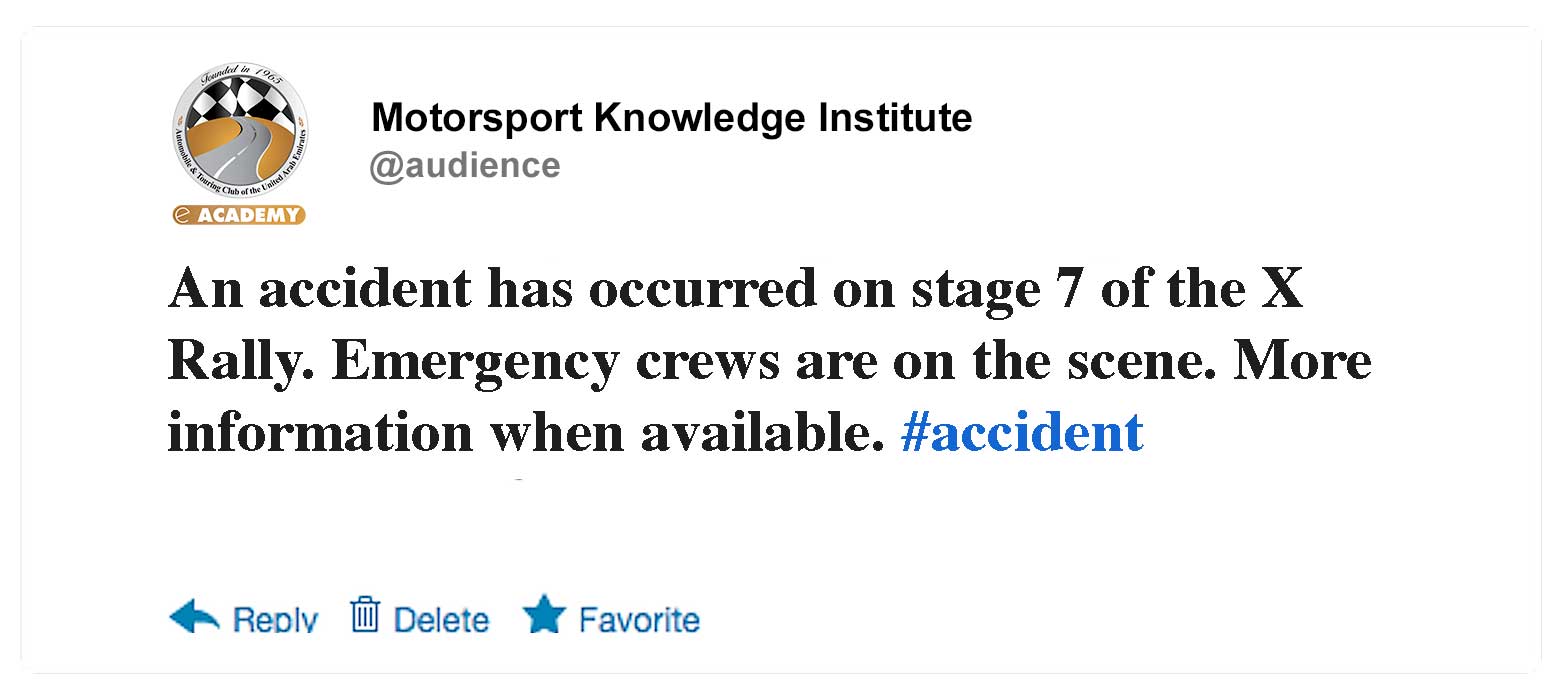Communications Overview
CRISIS MANAGEMENT TEAM (CMT)
- CMT meets once the organisation becomes aware of a situation
- Clerk of the Course hands over to his Deputy to run sporting matters
- Pre-defined quiet area but near Race Control / Rally HQ which is equipped with basic means of communication (phone line, fax, Internet, printer etc)
3As
- Alert : Identify the issue as early as possible via the normal motorsport chanels or via social media listening
- Assess : the severity of the issue, what type of action is needed and which which stakeholder group
- Act : Manage the issue
Communications Overview
- Who : Needs to be communicated with ?
- How : What method will be used e.g. Text message for officials , phone call to sponsor or statement for media
- What : Message / Information is communicated
Motorsport Who’s may include
- The Media
- The family of those impacted
- The ASN
- The Volunteers / Officials working on the event
- Team management of those involved
- Sponsors
- FIA/FIM
- Important local stakeholders
Initial Response…. What went wrong
- Do not jump into conclusions, you must give one definitive answer
- Until definitive causes are found – publicize the investigation
- Rumour vs Fact crisis communications procedures when the news leaked to the media
Sample Initial Tweet ( or statement)
- An accident has occurred on stage 7 of the X Rally. Emergency crews are on the scene. More information when available.

- The initial statement takes pressure off your team at this stage and allows you to access the situation and next steps.
Procedures: Rumours
If the information in the media turns out to be rumors, apply rumour procedure:
- Do not publicize the rumour (any more than the media already had)
- Promote the opposite of what the rumour said (using qualified speakers / opinion leaders)
- Provide proof to support the information that you are communicating
Procedures: Facts
If the information in the media was found to be factually correct, employ the fact procedure
- Admit and apologise for the error(s)
- Limit the scope (point out on some of your strengths ie experts on scene to deal with accident etc)
- Where possible, propose a solution so the crisis is not unlikely to reoccur
Sequence
- Remember, if the story broke in one particular media outlet first, it is important that you make your response or your first statement to that outlet first.
- In some cases, e.g. denial of a false rumor, no further action may be needed
- When this has been done you can, if required, send the information to other media outlets
Initial Response…. Acknowledge
- You know……
- Facts beyond question
- Actions being taken
- Acknowledgement of emotions/psychological needs ( if needed )
- Commitment to provide more information as it becomes available
- DO NOT DELAY THIS ACTION